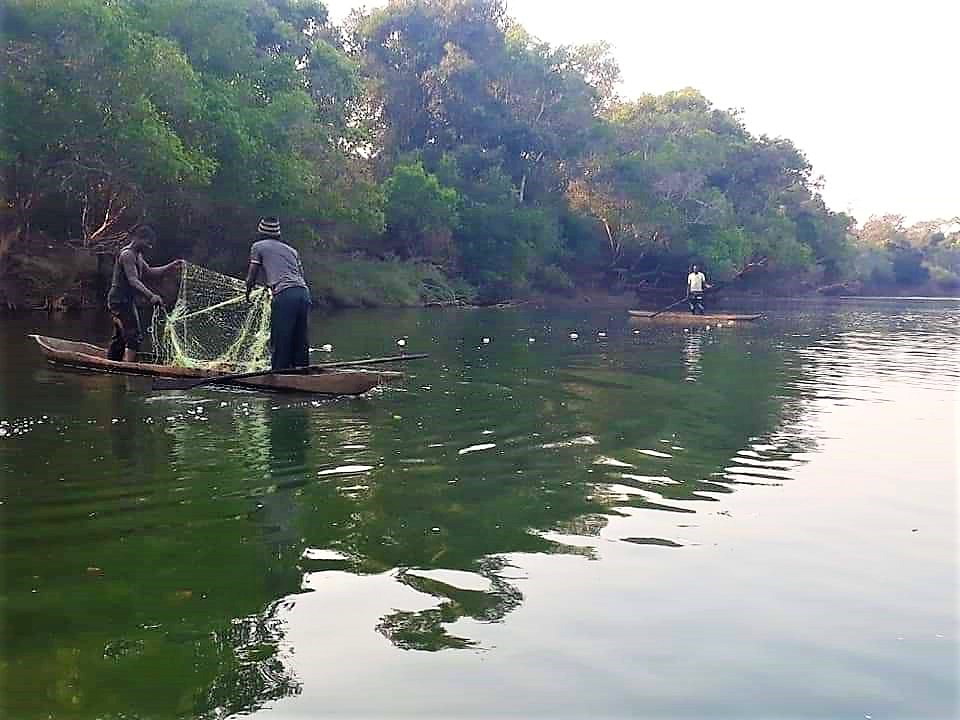|
Cycle 6 (2017 Deadline)
Water security and social-hydrological resilience for rural small-scale crop value chains
PI: Marizvikuru Manjoro neé Mwale, mukudzeishe@yahoo.com, University of Venda
U.S. Partner: Brian Chaffin, University of Montana, Missoula
Project Dates: March 2018- February 2022
Project Overview
A value-chain approach can answer important research questions for sustainable agriculture, food and water security, and social-hydrological resilience. This PEER project sought to identify ways to secure scarce water resources of rural small-scale crop farming value chains at a river basin scale and promote water security that supports small-scale agricultural productivity, specifically in the Limpopo and Zambezi river basins. The PI and her team applied the value-chain analysis framework to assess water use in the production, post-harvest handling, and consumption of selected crops in the Limpopo and Zambezi River Basins. In addition, by estimating the water footprint for selected crops within the Limpopo and Zambezi River Basin, this project produced regional data sets to inform policy and to be used in post-harvest application.
Final Summary of Project Activities
The team began with a detailed literature review on agricultural water use, security, productivity and footprinting, seeking to better understand water utilization in rural small-scale crops in South Africa and the broader region. They used value-chain mapping to identify and characterize actors and their linkages, from the producer to the final consumer, and compared variations of water use for selected smallholder crops. They found that most value chains studied were short in nature and dominated by informal trading arrangements based on trust and long-term relations. There were no formal contracts and in most cases prices were mainly negotiated, based on prevailing market prices in nearby towns. The exception was tomatoes in the Limpopo River Basin, which were grown for commercial purposes and processed into tomato paste.
The researchers used study sites in Zambia and South Africa that grew maize, tomatoes, sugarcane, soybeans, groundnuts, sugar beans, butternuts, and leafy vegetables to calculate the blue water footprint—water sourced from rivers, lakes, dams, and irrigation—of the selected crops. They also identified that most of the water used was in the production phase of the value chain. Researcher interviews with farmers identified their awareness of global water scarcity and documented how they controlled their water use to save water. But they also had inadequate knowledge on water footprints and how they contribute to understanding water usage. The PEER team found the farmers largely don’t measure the amount of water they use for growing their crops. This meant that the researchers had to use existing estimates from other studies within southern Africa to calculate the water footprints. Additional water security risks identified by farmers included low volumes of water, low water pressure, old irrigation techniques, poor water infrastructure, algae growth in water jugs used to wash harvested food, and water quality issues, primarily salinity and pollution.
The PEER team developed three policy briefs, including one on managing water risk along crop value chains, as well as farmer handbooks and short courses, which were translated into the local languages. They also held a conference on their research, which led farmers to form an irrigation scheme cooperative and a commitment from the local government to help farmers mentor each other on water security.
The PI Dr. Manjoro was nominated as an Africademics Scholarship Ambassador and to be a member of the Research and Postgraduate Studies Committee for the Faculty of Science Engineering and Agriculture at her institution. Another team member, Linda Downsborough, was named researcher of the year at The Independent Institute of Education, and the PEER project contributed to mentorship and continued research of a number of students, including two PhD candidates and a Master’s student. The PEER project also led to the development of a strategy to use solar energy to generate power to drive the water pump machines that channel water from the source to the field.
Publications
Rophinah T. Lebepe, Marizvikuru Mwale, Simbarashe Kativhu, and Jethro Zuwarimwe. 2022. Reviewing the impact of the interventions to reduce water scarcity among smallholder farming Practices. Journal of Kadirli Faculty of Applied Science 2(2): 281-305. https://kadirliubfd.com/index.php/kubfd/article/download/25/42
Simbarashe Kativhua, Marizvikuru M. Mwale, and Jethro Zuwarimwe. 2020. Agricultural resilience under increasing water security threats: insights for smallholder farming in Limpopo Province, South Africa. Water Practice & Technology 15(4): 849-862. https://doi.org/10.2166/wpt.2020.068
Back to PEER Cycle 6 Grant Recipients
|
|
|
|




